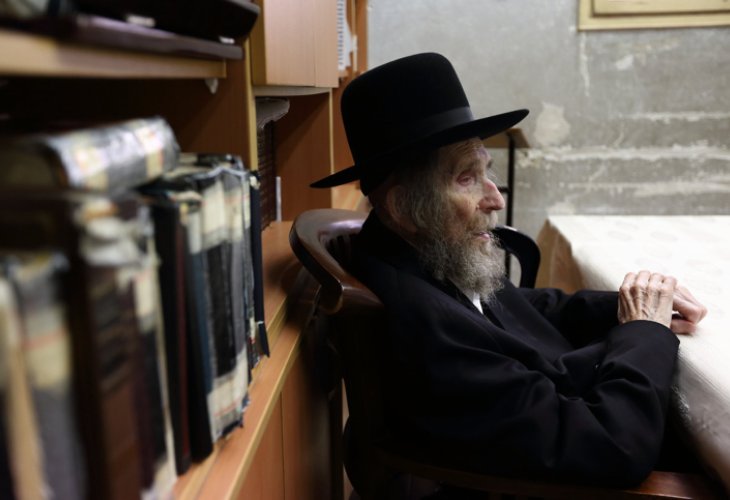Torah Personalities
The Humility of a Giant: Stories of Rabbi Aharon Yehuda Leib Shteinman
From an open home to a heart open to all, the legendary Torah leader embodied true humility
 Rabbi Shteinman zt"l (Photo: Yaakov Nahumi / Flash 90)
Rabbi Shteinman zt"l (Photo: Yaakov Nahumi / Flash 90)In the book Ka’ayal Ta’arog – Hadrakhot VeHanahagot, the profound humility of the late Rabbi Aharon Yehuda Leib Shteinman is captured through quiet moments, personal anecdotes, and striking displays of self-effacement that defy typical leadership models. These stories, shared by Rabbi Miskovsky, among others, offer a glimpse into the inner world of a man who carried the burden of the Torah world on his shoulders, yet never saw himself as greater than anyone else.
“Just Call Me Aharon”: The Humility Behind the Title
When Rabbi Miskovsky’s father—then a mashgiach (spiritual guide) at Yeshivat Gaon Yaakov—asked Rabbi Shteinman how he should address him, the reply was disarmingly simple: “Just call me Aharon.” That response encapsulated his entire approach to life: titles meant nothing to him; character meant everything.
Rabbi Shteinman once explained his view on humility: “Being humble doesn’t mean a gifted young man thinks he isn’t gifted. It means that whatever level he has reached, he doesn’t feel entitled to anything because of it.” Quoting Pirkei Avot, he would say: “Do not take credit for yourself, for this is why you were created.”
He also taught that truly great people don’t measure themselves against their peers, but against their own potential. “They ask,” he said, “When will my deeds reach those of my forefathers?”
Humility in Every Encounter
When a group of farmers once came to seek Rabbi Shteinman’s blessing before shemittah (the sabbatical year), he encouraged them warmly. One farmer’s phone rang loudly during a private conversation, but Rabbi Shteinman didn’t flinch. Instead of showing discomfort or rebuke, he continued speaking calmly and respectfully. “Even ordinary people would be disturbed by such a thing,” said Rabbi Miskovsky, “but his humility expanded my own.”
In another instance, a young man from South America spoke to the rabbi casually, referring to himself in the first person and speaking as if to a peer. Rabbi Shteinman never showed the slightest trace of offense or discomfort. His complete absence of ego was palpable.
A Life of Simplicity, A Home with No Boundaries
Rabbi Miskovsky recalls a man who had prayed for months next to Rabbi Shteinman in a Bnei Brak synagogue without realizing who he was. “I sit beside him,” the man said, “he sometimes passes me a siddur (prayer book)… he never acts like a Rosh Yeshiva!”
One time, after delivering a shiur (Torah lecture) at Yeshivat Orchot Torah, Rabbi Shteinman turned to leave, then paused, returned to his seat, and told the students: “Perhaps the shiur wasn’t so clear. I probably should have prepared it better.”
For the last 25 years of his life, Rabbi Shteinman bore the responsibility of leading the Torah public, yet he never changed his lifestyle. His home was open 24/7, no office, no private corner, no special chair or desk. “People sat on his chair,” Rabbi Miskovsky says, “used his lectern, even sat on his bed. He didn’t stop them. He shared everything.”
And yet, Rabbi Shteinman was extremely refined. His clothes were spotless, his standards exacting, and his belongings were available to all without restriction. “There were no boundaries, no ‘mine’ and ‘yours,’” said Rabbi Miskovsky. “Even his bed was communal space.”
A Leader for All, At Any Time
More than his possessions, Rabbi Shteinman gave of himself. “He didn’t just open his home to all as if it was public property,” says Rabbi Miskovsky, “he gave himself, entirely, to the public. Whether to a boy or an elder, to a Torah scholar or a simple Jew, he was available all hours of the day and night.”

